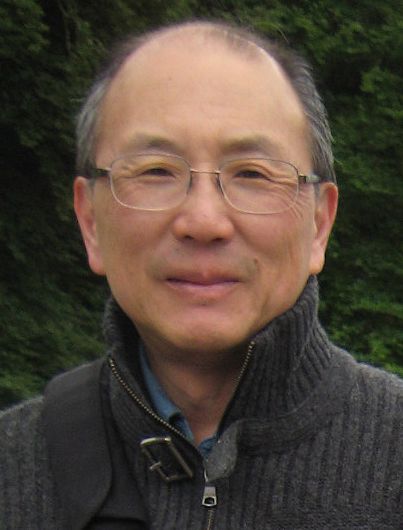
Supporting Innovation

Two UC Santa Barbara research projects have been awarded separate prestigious grants from the Andrew W. Mellon Foundation that will allow them to bring new insights and technologies to their perspective fields.
The foundation awarded the UCSB-based WhatEvery1Says (WE1S) project $1.1 million over three years to study the representation of the humanities in public discourse. Alan Liu, a professor of English, is the principal investigator (PI). Jeremy Douglass, an assistant professor of English, is co-PI. California State University Northridge and the University of Miami are subgrantees, and faculty members Scott Kleinman and Lindsay Thomas at those campuses, respectively, also serve as co-PIs.
UC Santa Barbara was also awarded a $225,000 grant to support a yearlong Sawyer Seminar on “Energy Justice in Global Perspective.” The seminars allow universities to conduct intensive study on a topic, one that’s difficult to pursue under normal circumstances. The seminar will run through the 2018-19 academic year. The co-PIs, all from UCSB, are Javiera Barandiaran, associate professor of global studies; Mona Damluji, assistant professor of film and media studies; Stephan Miescher, associate professor of history; David Pellow, Dehlsen Endowed Chair in environmental studies; and Janet Walker, professor of film and media studies.
Modeling the humanities
The WE1S project is an outgrowth of 4Humanities, an advocacy initiative Liu founded in 2010 in response to what is often called the “humanities crisis” — the perception in America and some other nations that the disciplines within the humanities are of little value in higher education. To address the issue, Liu started WE1S in 2013 to mine digital media to learn what pundits, politicians, scholars, students and others think about the humanities. The data collected would be used to formulate strategies and narratives to counter misconceptions.
“We humanities professors talk a good game when we try to talk to other people and parents and students about the value of humanities,” Liu explained, “but we know very little about how our value terms fit in with the larger set of value terms in society.”
For example, he noted, scholars like to say that the humanities promote critical thinking skills. But does that mean anything to a non-academic? “When you talk to a member of the community, critical thinking is like a buzz word; it doesn’t mean anything in particular,” Liu said. “So, what are the values invested in the phrase ‘critical thinking’ from the perspective of someone in the humanities, and how does that translate and link up to a larger set of value terms in society as a whole?”
As funded by the Mellon grant, WE1S will approach the subject with “topic modeling,” using what Liu called “unsupervised machine learning.” Topic modeling, which has become popular with researchers over the past several years, employs sophisticated computer algorithms to search vast digital archives of media — newspapers, magazines, blogs, etc. — for words related to the humanities and liberal arts.
Once the computer has collected a set number of words, it will sort them into “buckets” of identifiable, different kinds of words that, Liu said, “to a human interpreter look like they’re themes or topics.” At this point, scholars can search for hypotheses and investigate interesting anomalies.
“These kinds of computation methodologies in the digital humanities,” Liu explained, “are really the only means you can do so at scale so that we go beyond anecdotes and beyond the obvious big article in the New York Times about declining English majors at Harvard. That’s what we’re after.”
Beyond the data analysis and classification, Liu said WE1S is intended to advance the methods and technologies of scholarly research and publication. With help from Douglass, Kleinman and Thomas, the project will develop a system that allows researchers to do topic modeling and which will generate a website with an interactive browser for understanding the findings. In addition, the system will be transparent and reproducible for other researchers.
The grant will fund positions for graduate student assistants and two postdoctoral researchers, Liu said.
Ironically, the technologically sophisticated WE1S was designed to counter the idea that the humanities are irrelevant in today’s tech-driven economy, and to answer the questions, “What are you going to do with a humanities degree?”
“In real life, humanities majors end up doing all kinds of things,” Liu said. “Statistically, we now know that they may not get as high an initial salary as others, but over the long haul they seem to do better than many other professions in terms of the kind of salary you get.
“What the humanities tend not to have is a straightforward, A-to-B career path,” he continued. “I see all these students who come in motivated by their own anxiety and parents’. They want to take a major that has a predictable career path — pre-law, pre-medicine or something like that — whereas when you track the success path of the people who are successful as writers, screenwriters, directors it’s a crazy zig-zag after you take your major.”
Energy justice
The Sawyer Seminar aims for a deep and far-reaching exploration of energy justice, Barandiaran said, focusing on the development of alternatives to existing energy systems and practices in the industrialized societies of the Global North, where a fraction of the global population consumes a super-sized portion of fossil fuels.
Although the schedule still needs to be finalized, a postdoctoral fellow will be appointed, visiting scholars and filmmakers will be welcomed, and researchers from UCSB and around the region will come together regularly for discussions and strategizing. The grant will also fund two yearlong UCSB graduate student fellowships.
“We’ve reached out to a huge network of scholars interested in the issues of energy justice so that we can create a network of like-minded researchers and brainstorm new research ideas,” Barandiaran said.
The seminar’s overall focus will be on what academics can do to help enact a more just and feasible energy future. “We have a lot to learn from indigenous communities and other historically marginalized groups,” Barandiaran explained. “With the goal of helping to change the current energy regime, the seminar will cultivate knowledge of the narratives, identities, values and forms of power held and promoted by communities on the front lines of past and present energy injustices.”
The seminar will begin with the fall 2018 quarter at UCSB.



